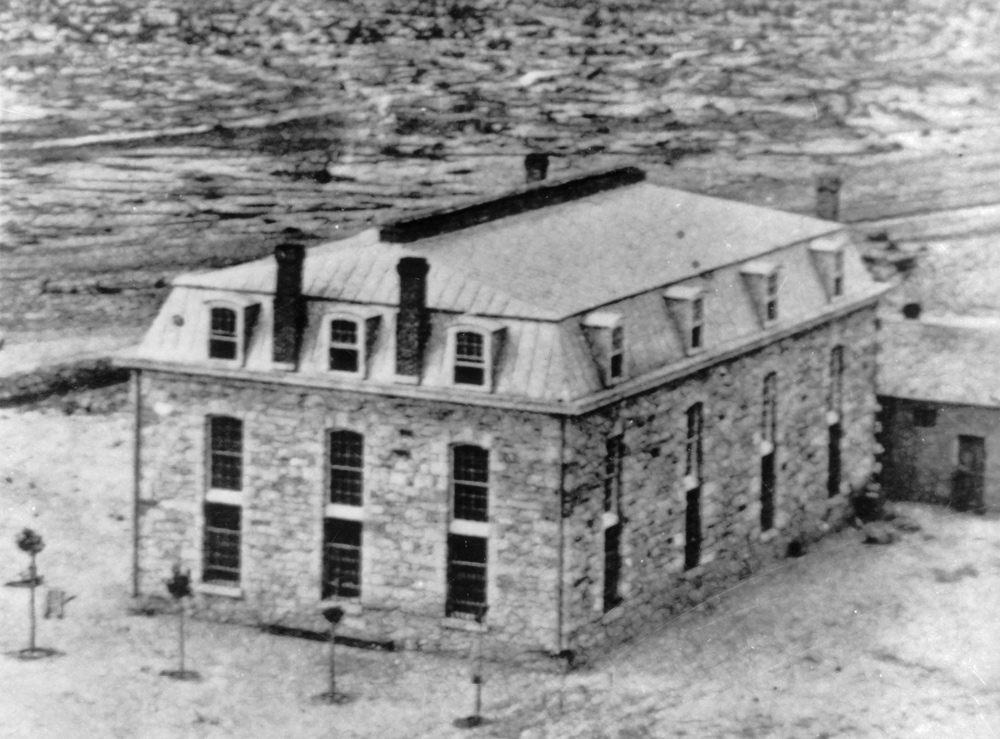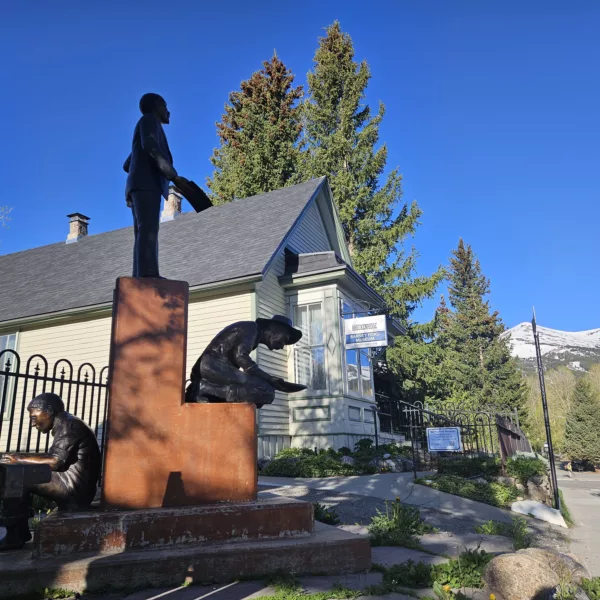Louis Ford: Part 2 – Falls far from the Family Tree
April 15, 2022 | Category: Our Collective History
Louis Ford’s tendencies toward criminality became evident in his teens when he was accused of theft by a client at the Cheyenne hotel owned by his father, Barney L. Ford. The senior Ford rose to great respect and prominence in Colorado and Wyoming by the 1870s, after escaping from an early life enslaved. His son fell far from the family tree, likely a cause of considerable sadness for the Ford family. In this second of three parts on the life of Louis N. Ford, Breckenridge History examines Louis’ adult years.
Louis Ford spent his impressionable youth in Denver and Cheyenne, towns of the Wild West, where he was able to witness shootings, stabbings, prostitution and vice on a regular basis. Learn more about Louis’ young years, including the Cheyenne theft charge, in this article.
At age 20, in 1880, Louis Ford was living with his parents, now at their new home in Breckenridge, where he helped his father at Ford’s Chop Stand. Knowing his life’s arc toward criminality, historians wonder if he ran into trouble with the law while in Breckenridge. Yet no newspaper articles of the time mention his name in association with crimes. According to the 1885 census, Louis had left Breckenridge.
In September 1887, The Buena Vista Democrat reported that Louis Ford was indicted for burglary. In December of that year, the newspaper praised the sheriff by publishing a list of criminals who were “locked up or awaiting trial” in his jail. Included in the list was Louis Ford, with the now elevated charge of grand larceny. It is worth noting that Louis remained jailed for those four months and was not bailed out.
In January 1888, the court convicted Louis Ford of burglary and sent him to the Colorado State Prison in Canon City, where he was received on January 22nd of that year, to serve an eight-year sentence.
Many years later the Denver Post would publish a partially-incorrect article about Louis’ criminal past which stated he had robbed a jewelry store in Salida and spent time in Colorado prison. This is the only available information with details about that crime.
Colorado prison life at the time of Louis’ first incarceration did not include attempts at rehabilitation. Overcrowding and idleness led to dissipation and recidivism. Drastic punishment was the norm. Traditional images of prison life held true: men in stripes under heavy guard, ball and chain, rock piles, bread and water diets, and solitary confinement were common at the Colorado State Penitentiary.
At that time, inmates were not required to work while in prison, though some were employed in the garden or in the construction and repair of walls and buildings. One potential source of income for the prison and its inmates was shoe-cobbling. Later in his life, on the intake form for his third prison term, Louis listed his occupation as “shoemaker.”
In early 1890, while Louis was in prison, Barney and Julia Ford left Breckenridge and moved to Denver. Father Barney must have intervened on behalf of his son and used his political connections, because two years after entering the penitentiary, Louis was pardoned by Colorado Governor Job Cooper, a Republican (B.L. Ford was active in the Republican party in Colorado). Louis was released from the Colorado State Penitentiary on June 25, 1890.
Just a few months later, Louis appears in the newspaper record in Aspen. According to the Aspen Daily Chronicle on December 5, 1890: “Two colored men got into a shooting scrape yesterday evening and one came very near being killed. The two men are Howard Washington and Louis Ford… The men had been drinking together and just before 6 o’clock went into the Empire saloon to shake dice.” Ford was a porter at the Empire. Washington lost and paid for the drinks. Then they “got to shooting craps.” Washington accused Ford of cheating. They quarreled and “Ford slapped the other fellow.” Claiming he would “get him,” Washington left and soon returned with a revolver, only to find that Ford was gone. Washington was “very drunk.” A few minutes later, Officer Bean heard three shots on Durant Avenue, and arrived on the scene to find Ford bleeding “profusely from a wound in the face.” Washington’s case was considered quickly, and on December 24, 1890, he was discharged. The grand jury found “no true bill against the accused.” The newspaper wrote: “It may be…that they concluded that Washington was not to blame.”
Years later, Louis would write about that episode in his life, saying: “…I use (sic) to follow gambling for a living at one time and done well until I commenced to drink so hard and could not protect myself.”
After the Aspen incident, Louis moved to Missouri where he worked as a railroad porter. In June 1891, Louis was sentenced to ten years in the Missouri State Penitentiary on the charge of robbery in the first degree. The crime occurred in Jackson County, which includes the cities of Independence and Kansas City. In this prison record, his name is spelled “Lewis.” No other details of the crime are discoverable. Robbery in the first degree indicates that the defendant forcibly stole property and in the course of committing the crime, caused serious physical injury, or was armed with a deadly weapon, or displayed or threatened the use of a dangerous or deadly weapon. This was the most serious of Louis’ known crimes.
Louis was a sturdy man, weighing between 161 and 165 pounds throughout his adult life. Prison records indicate his height at about 5’7.” As a black man, he faced historically-known discrimination in his life and prison experience. Even today, Missouri incarcerates a higher percentage of its black population than any democracy on earth. In Louis’ time, black men were imprisoned for even the slightest offense. According to one expert: “In the late 19th-century South, an extensive prison system was developed in the interest of maintaining the racial and economic relationship of slavery.”
Discharged under Missouri’s three-fourths law, Louis left the Missouri prison in Jefferson City on December 5, 1898. Five months later, in May of 1899, his mother Julia died in Denver. Louis signed a waiver of service of the will a few days later, two days after his sister and father signed their waivers, indicating he was not with them at the time. Julia’s will bequeathed her estate to Barney Ford, not to her surviving children. Correspondence from later in Louis’ life indicated that he expected to receive support from her estate but that he “could not get it.”
What does the future hold for a black man with a criminal record in the late 19th century? Louis’ prospects were dim indeed. Learn more about the final years of the life of Louis N. Ford in Part 3 of this series.
To learn more about Breckenridge History, click on the website, take a tour, visit a museum, and check out our blog articles.
Written by Leigh Girvin








